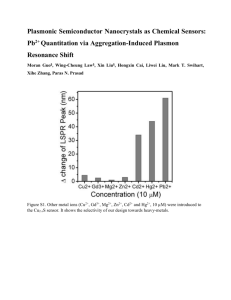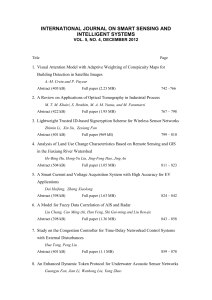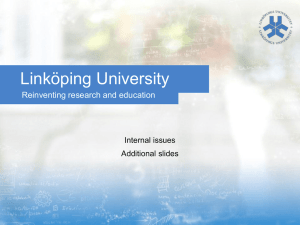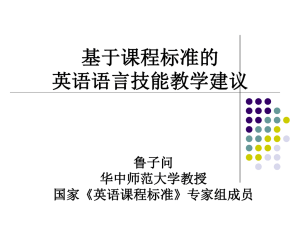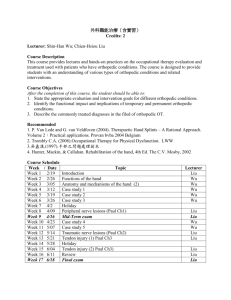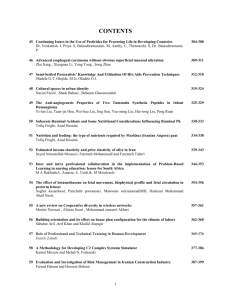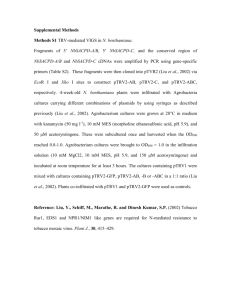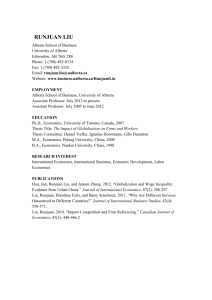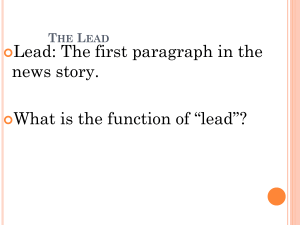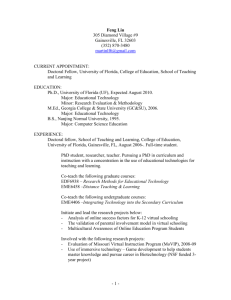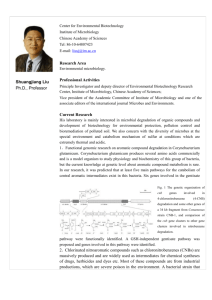CONTACT: Allison Elliott, (859) 323
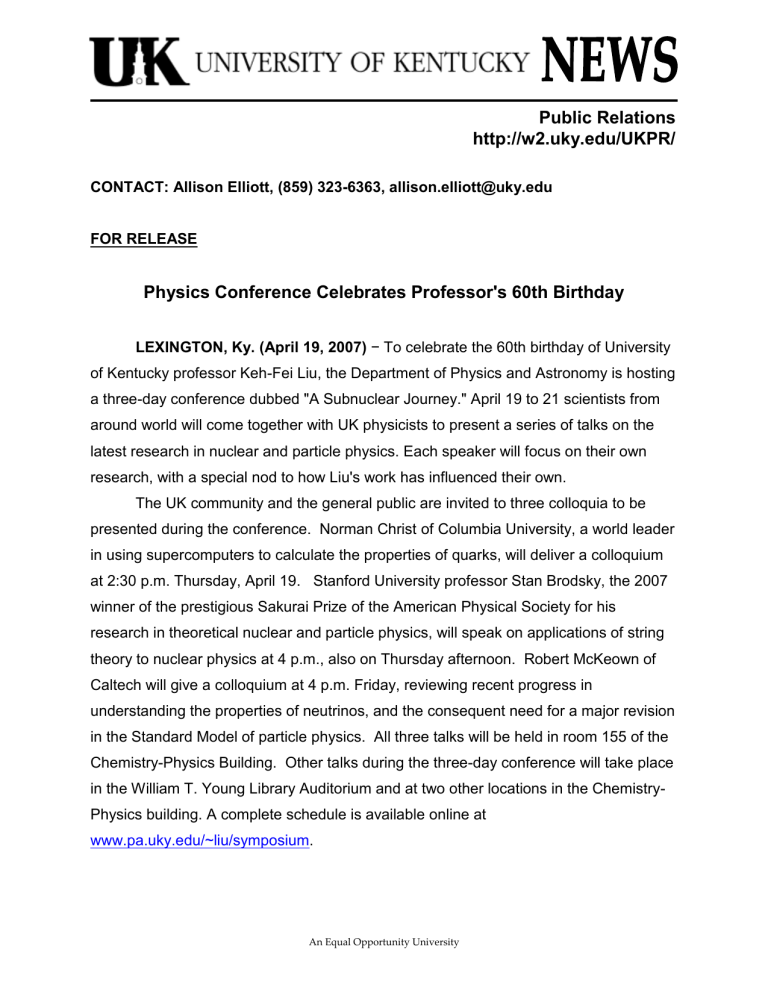
Public Relations http://w2.uky.edu/UKPR/
CONTACT: Allison Elliott, (859) 323-6363, allison.elliott@uky.edu
FOR RELEASE
Physics Conference Celebrates Professor's 60th Birthday
LEXINGTON, Ky. (April 19, 2007)
− To celebrate the 60th birthday of University of Kentucky professor Keh-Fei Liu, the Department of Physics and Astronomy is hosting a three-day conference dubbed "A Subnuclear Journey." April 19 to 21 scientists from around world will come together with UK physicists to present a series of talks on the latest research in nuclear and particle physics. Each speaker will focus on their own research, with a special nod to how Liu's work has influenced their own.
The UK community and the general public are invited to three colloquia to be presented during the conference. Norman Christ of Columbia University, a world leader in using supercomputers to calculate the properties of quarks, will deliver a colloquium at 2:30 p.m. Thursday, April 19. Stanford University professor Stan Brodsky, the 2007 winner of the prestigious Sakurai Prize of the American Physical Society for his research in theoretical nuclear and particle physics, will speak on applications of string theory to nuclear physics at 4 p.m., also on Thursday afternoon. Robert McKeown of
Caltech will give a colloquium at 4 p.m. Friday, reviewing recent progress in understanding the properties of neutrinos, and the consequent need for a major revision in the Standard Model of particle physics. All three talks will be held in room 155 of the
Chemistry-Physics Building. Other talks during the three-day conference will take place in the William T. Young Library Auditorium and at two other locations in the Chemistry-
Physics building. A complete schedule is available online at www.pa.uky.edu/~liu/symposium .
An Equal Opportunity University
Liu has been a member of the faculty of UK’s Department of Physics and
Astronomy since 1980. In the course of his research career he has published more than 150 scientific articles and given over 200 invited talks in 15 countries. The main focus of Liu’s research – and the research of most of the conference participants – is quantum chromodynamics (QCD), the fundamental theory of the strong force, which holds quarks together inside of protons and neutrons. A large component of Liu’s research effort is devoted to the computational approach to this theory known as lattice
QCD, which requires vast supercomputing resources and large-scale collaborations.
Liu’s current projects include calculations of the masses of subatomic particles, the internal structure of protons, and bulk properties of quark-gluon plasmas. The results obtained by Liu’s research group have been used to confront experiments done at national labs, to test theoretical models of the strong interaction, and to help understand the roles played by strongly interacting particles in the development of the very early universe. Liu’s research program has been funded continuously by the Department of
Energy since 1982. He received a prestigious Humboldt Senior Scientist Award in
1990, and was named a Fellow of the American Physical Society in 1997 “for his pioneering work in lattice gauge calculations which checked nuclear models quantitatively.”
Liu has also gained recognition for his work as a social activist, which grew out of his 1992 legal fight with a dancing school over its discriminatory practices against his daughter and other minority students. With the help of his daughter's school teacher, other parents, and The National Conference for Community and Justice (NCCJ), he eventually won the case and subjected the dancing school to the supervision of the city's Human Rights Commission. This experience led to a continuing and active involvement with NCCJ, where he served as a board member and regional adviser for many years.
More recently, Liu has become an advocate for scientists around the world who have been victims of political and social injustice. He served as a member of the
Committee on International Freedom of Scientists of the American Physical Society from 2001 to 2004. In recognition of his tireless efforts as a human rights advocate, he was named an “Unsung Hero” by Humanitarium of Lexington in 2006.
The conference is jointly sponsored by the UK College of Arts and Sciences, the offices of the Vice President of Research and the Provost, the Department of Physics and Astronomy, and the Center for Computational Sciences. For more information call
Al Shapere at (859) 257-8896 or Terry Draper at (859) 257-3413.
###
In striving to become a Top 20 public research institution, the University of Kentucky is a catalyst for a new Commonwealth – a Kentucky that is healthier, better educated, and positioned to compete in a global and changing economy. For more information about UK’s efforts to become a Top 20 university, please go to http://www.uky.edu/OPBPA/Top20.html
